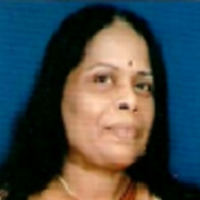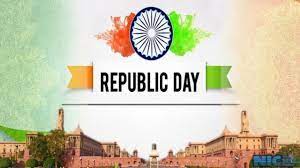India on the 75th Republic Day!
By M.Y.Siddiqui
The Constitution of India, enforced with effect from January 26, 1950, stands subverted today when we take stock of the republican India on the 75th Republic Day 2024. Basic tenets of the Constitution--- Justice, Equality, Liberty and Fraternity--- have been circumscribed to suit the majoritarian Hindutva politics of the RSS Pariwar union government and the Sangh Pariwar ruled States. Constitution promotes three strands of absolute supremacy of law, equality before law, doctrine of rule of law and prominence of legal spirit. Doctrine of the Rule of Law, under the Constitution, essentially postulates the supremacy of law in our democratic regime. Fundamentally, the idea behind the doctrine is to restrict the exercise of arbitrary power by the democratically elected government and to ensure that the state follows certain basic principles and procedures while making, implementing and enforcing the law. This doctrine ensures that a democratic society is ruled by law rather than by the whims and fancies of all-powerful state.
Rule of law pervades the Constitution of India, which provides for a written code to ensure compliance of laws. Article 21 of the Constitution says “no person shall be deprived of his personal life and liberty except in accordance to the procedure established by law”. This establishes the supremacy of law over any authority and power-exercising institution. There is a mechanism for checks and balances as given under Article 13 (1), which provides for the legislative actions to be in conformity with the constitutional principles. The system of checks and balances extends to the provision of judicial review, which can be exercised by the High Courts under Articles 226 and 227 and the Supreme Court of India under Articles 32 and 136 to exercise control over arbitrary governmental actions. Article 14 of the Constitution ensures everybody before law is equal, meaning that every one placed in like situations must be treated alike.
Article 141 upholds the Doctrine of Precedents, that is, the previous decisions of judges are binding on future cases where similar situations arise. Constitution itself is a result of individual rights. Further, the Supreme Court in Kesvananda Bharati case (1973) incorporated the Doctrine of Rule of Law as an indispensible part of the basic structure of the Constitution. In the case of Som Raj (1990), the Supreme Court held that “the absence of arbitrary power is the first postulate of rule of law upon which our whole Constitutional edifice is based”. In another case Chief Settlement Commissioner, Punjab & Others (Ors) Vs. Om Prakash & Ors, the Supreme Court held, “In our constitutional system, the central and most characteristic feature is the concept of the rule of law which means in the present context, the authority of the law courts to test all administrative actions by the standard of legality. The administrative or executive action that does not meet the standard will be set aside, if the aggrieved person brings the appropriate action in the competent court”.
A closer look at the prevailing circumstances in India highlights how some anti people; anti democratic, unconstitutional and arbitrary decisions and actions of the RSS Pariwar union government undermine the essence of the Doctrine of Rule of Law. The current Indian socio-political scenario is marred with various such instances that seem to highlight the exercise of the unbridled and arbitrary power of the state. Three major glaring instances are: highest number of Internet shutdown from 56 times between 2013 to 2016, jumping to 600 percent between 2017-2020. In Jammu & Kashmir alone, Internet was shut down for 219 days since August 5, 2019. Shutdown of Internet violates the fundamental rights of the people and forbid them from exercising their individual liberty and will, creating an atmosphere of an autocratic regime and complete annihilation of the Rule of Law.
As for the prohibitory orders under Section 144 of the Criminal Procedure Code, 1973, in Delhi alone 276 times were clamped between 2017 and 2020. It curtails liberty of individuals and the rights of the people to agitate and protest peacefully. Supreme Court of India (SCI) in the case Anuradha Bhasin Vs. Union of India (UOI) 2020 held “this section cannot be used as a tool to prevent legitimate expression of opinion or grievance of any democratic rights and further that the repetitive imposition of Section 144 is “abuse of power”.
The three farm laws, later withdrawn, following massive protests by farmers, were heavily criticized for favouring large farmers as it allowed selling of produce directly to private players. Marginal and small farmers whose livelihood depended on Agriculture Produce Market Committees would lose their voices and primary sources of income in the long run as they would not be able to compete with the wealthy farmers or corporates and thus forced to give up their agricultural land or their occupation. The three black laws were construed as violation of equality before law and further violation of Article 21, that is right to life, which includes a right to livelihood as ruled by the SCI in the case M.J.Svani Vs. State of Karnataka & Ors (1995) and Olga Tellis Vs. Bombay Municipal Corporation (1986). Further, these Bills in
the long run might create wealth divide between the marginal and wealthy/corporate farmers and thus in contravention of Article 38(2) and Article 39(c) of the Directive Principles of State Policy, which essentially direct the state (government) to strive to minimize the inequalities in income and prevent the concentration of wealth and means of production.
The Citizenship (Amendment) Act, 2019 (CAA) witnessed massive protests across the country resulting in political and social disequilibrium against the CAA. The Act was considered fundamentally discriminatory as underlying cause for protests. The office of the UN High Commissioner for Human Rights called the Act “fundamentally discriminatory”, in nature. The Act might be used along with the National Register for Citizens (NRC) to render many Muslims stateless, as they would not be able to fulfill the stringent requirements and criteria relating to birth or identity proof under the Act. This Act is a clear violation of the fundamental elements of Rule of Law, that is, Equality before Law. Muslims, who basked in the national liberal and secular order that gave them security, opportunity and dignity, lost it all since 2014 and they are living in fear, insecurity and threat to their livelihood along with other religious minorities.
In view of the foregoing, the rule of law-based system of constitutional democratic governance has been subverted further by making the civil services, police and other law enforcement agencies partisan, discriminatory, selective, unfair and unneutral. Other agencies like, CBI, ED, NIA, Income Tax, Central Vigilance Commission have lost their sheen by becoming unfair, partisan, unneutral and pliant of the Hindutva doctrine of RSS Pariwar union government. The much talked about Lokpal (anti-corruption watchdog) at the national level in the union government is in a state of dormancy and moribund. The most important constitutional bodies, Election Commission of India, created to conduct free and fair elections under Article 324 of the Constitution has collapsed altogether as it is unable to create level playing field in enforcing model code of conduct. EVM has become controversial as it can be hacked to benefit the ruling party. Claim of Election Commission that EVM is hack proof is not sustainable as highly secured bank accounts and security related government web portal is easily hacked. CAG conceived and established as a major autonomous institution to scrutinize functioning of government on planned expenditure and investments/disinvestments has also collapsed. Parliament (legislature) has become irrelevant and rendered redundant. Bills are passed without deliberations and scrutiny arbitrarily. Opposition are curtailed and rendered insignificant.
Judiciary, especially the higher judiciary known as constitutional courts, High Courts and the Supreme Court, have caved-in except the individual judges who outshine in their direction, superintendence and control of the executive, in upholding citizens right to justice, liberty, equality and fraternity against the repressive and oppressive conduct of the autocratic government. High and mighty and people owing allegiance to the ruling RSS Pariwar are granted reliefs or let off. The weak and non-RSS Pariwar persons are in for injustices galore.
Prime Minister is deified as beyond public scrutiny. He has molded himself as a cult with divine touch, infallible beyond questioning. Any body asking questions is dubbed anti-national and incarcerated under non-bailable dreaded laws and judiciary mostly supports that. All these are happening in our system of constitutional democracy where people are sovereign masters of the government of the transient majority and the government so elected is not accountable to the people. This, in sum, leads us to the conclusion that democracy as such is dead. Only structural facade remains. The checks and balances provided by the public institutions to safeguard people’s human rights in the form of justice, equity and fair-play have collapsed resulting in arbitrary and whimsical exercise of powers. In our religious neutral (secular) Constitution, the Prime Minister’s participation in religion and religious matters violates the Constitution. PM in himself alone constitutes the Government of India. His conduct, therefore, is subversive of the Constitution and rule of law based system of constitutional democratic governance. India’s democracy has turned into autocracy and the PM a ruthless dictator!
Powered by Froala Editor




LEAVE A REPLY